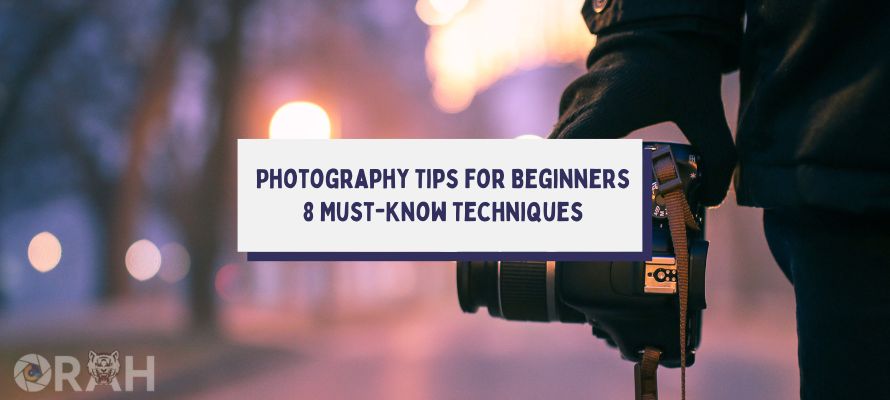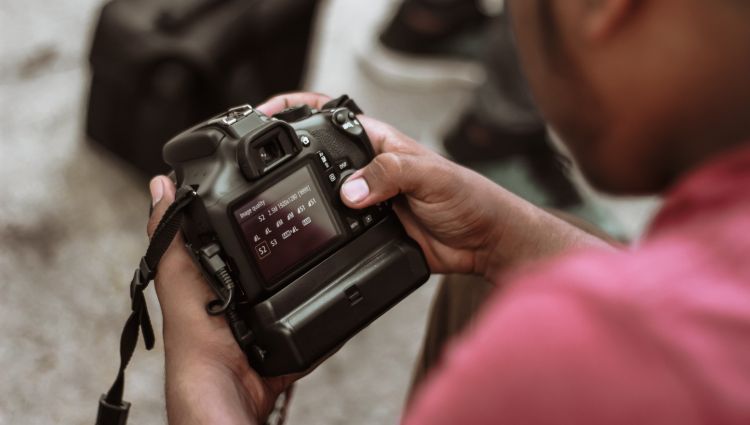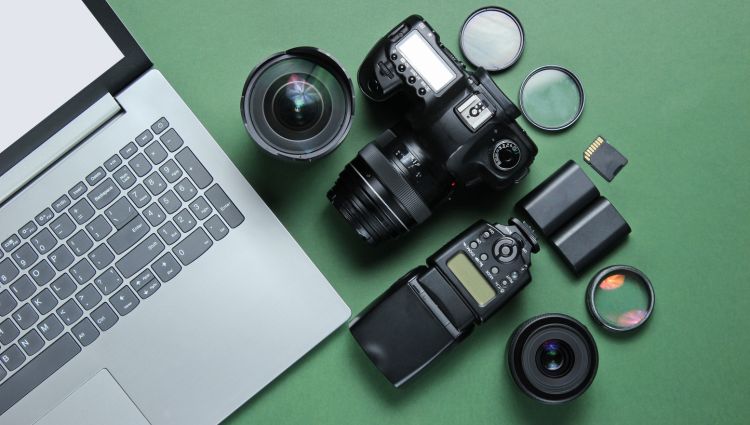
Is photography your passion or a profession? Remember, photography is not just about taking pictures, it is a work of art that needs immense creativity. If you’re starting with digital photography, you’ll get enjoyment for a lifetime.
In this article, you will discover useful photography tips mentioned for beginners. With these tips, you will come much closer to meeting your dreams of becoming a professional photographer.
Backup Your Photos
Don’t let some of your impressively captured photos get lost accidentally or due to any unpredictable reasons.

Keep a backup of every picture by saving them to Cloud storage. You can import icloud photos on a Mac, iPhone, and iPad anytime and anywhere. Keep at least 3 copies of all photos at a specific time, following the 3-2-1 rule.
You can keep copies on a removable storage medium, an internal hard drive, and off-site storage. Never store your photos only in one hard drive because a hard drive can be corrupted or broken.
Understand the Concept of Light
It is obvious that you know what light is, but understanding how light works for photography is essential.
Photography is about drawing with light. You can capture a good-quality photo with basic camera settings.
Studying basic photography skills is crucial for clicking photographs that everyone wishes to see again and again. Analyze some of your photographs or the art of others.
Determine where the highlights shine or where the shadows fall. Figure out how light or subject is placed to take that picture.
Study Basic Composition Rules
Learning the basic composition rules of photography is recommended when you don’t know where to begin with photography. Master the composition skills like the rule of thirds, guiding lines, and S curves.
Also, study the balance and golden ratio inside the image frame. Studying these skills will help you use any kind of camera. A modern DSLR and smartphone can be effectively used for several types of photo composition.
Don’t Lose Hope and Keep Patience
Mistakes are possible in photography due to poor knowledge and carelessness. So, take your time developing essential photography skills whenever possible, especially when you’re beginning from scratch.

Check your camera settings twice. When you’re shooting outdoor pictures on a sunny day using the settings of the last night for photographing the Milky Way, it is wrong.
Take the time to make the right decisions and review photos. Check your composition and autofocus. Find the errors with a picture in the field.
Use Your Existing Camera
Nowadays, the market is flooded with lots of cameras and other associated accessories that allow you to take a 3D photo.
Some models may be superior to others. When you have reviewed and tested most of them, the camera you’re using today is good.
There are only minor differences between all options available, mainly at a specific cost. Modern entry-level mirrorless cameras are better than DSLRs of a decade ago or top-rated film SLRs. Rather than collecting devices, focus on creative skills and camera settings knowledge.
Experiment with Something Unique
Experimenting with new things brings more curiosity. This technique is good for photography.
Trying new things will make photography more interesting. Experiment with new lighting techniques and try macro photography.
Switch to a unique post-processing style and visit locations you have never photographed earlier.
You would not regret exploring something unique no matter whether it is a personal preference or a new technique. It’ll bring you to regular photography for better outcomes.
Learn When to Use a Flash
There is a misconception that flashes are used only in dark environments. Flashes can be used outdoors and throughout the day because they are meant to get some additional light. To get an external flash, use a 50mm or longer lens and tilt it at the ceiling.

This would provide relatively better results. You can use a gentle flash to add the ugly shadows on the subject. The integrated flash of the camera is more useful on a sunny and bright day than in the darkness.
Conclusion
These are the beneficial photography tips and tricks for beginners to start with helpful initial steps. However, experienced photographers can also implement some of them to adopt new ways of photography.
Remember to start with essential photography basics and experiment with camera settings. Get started by taking pictures in a row and learn how to hold your camera. Get instant feedback by zooming in on photographs to learn from mistakes.